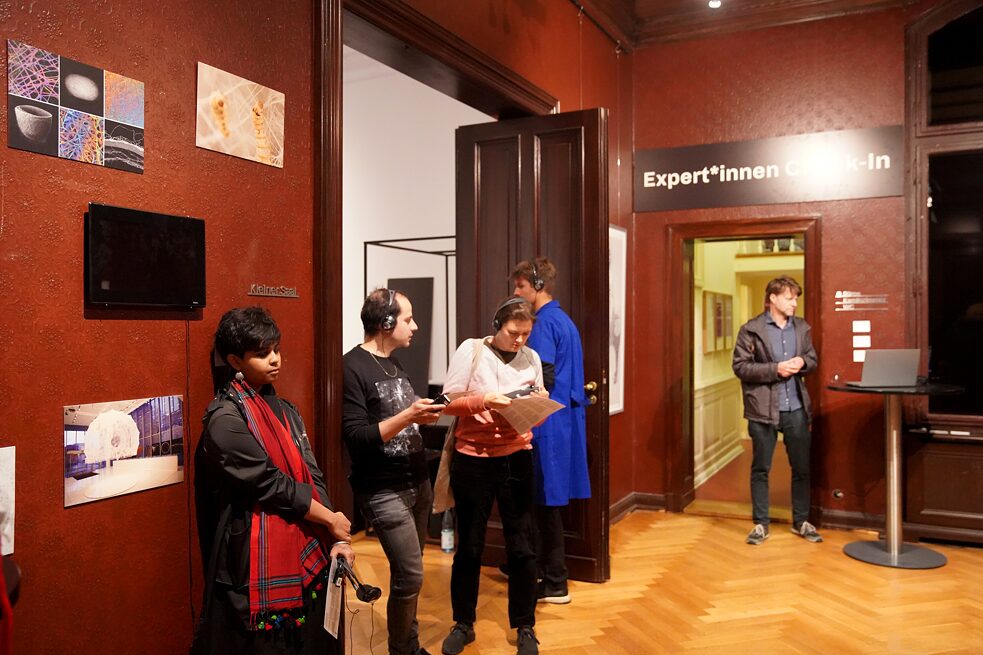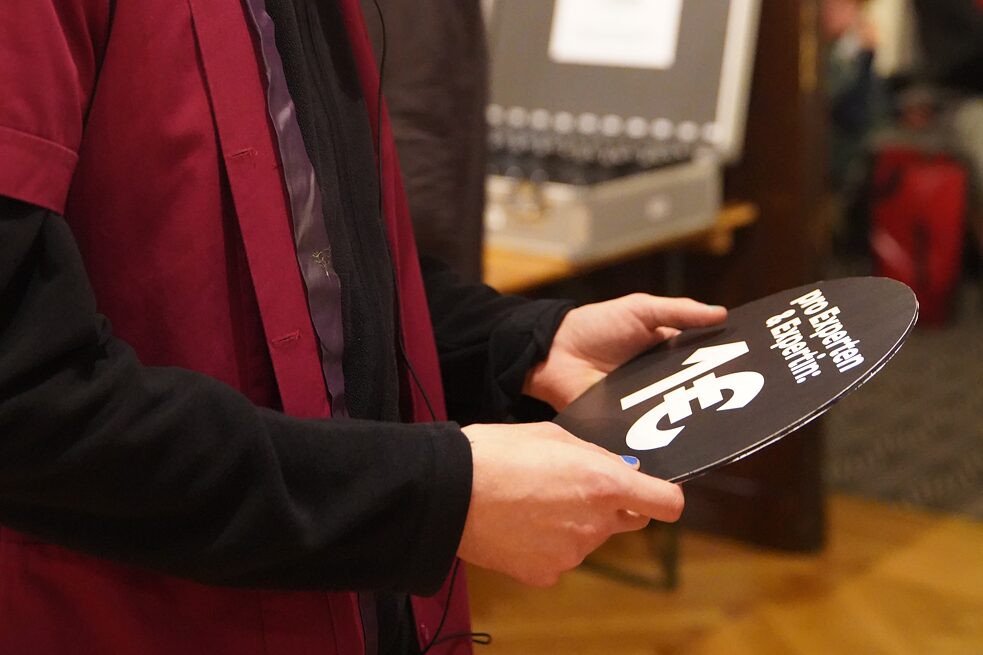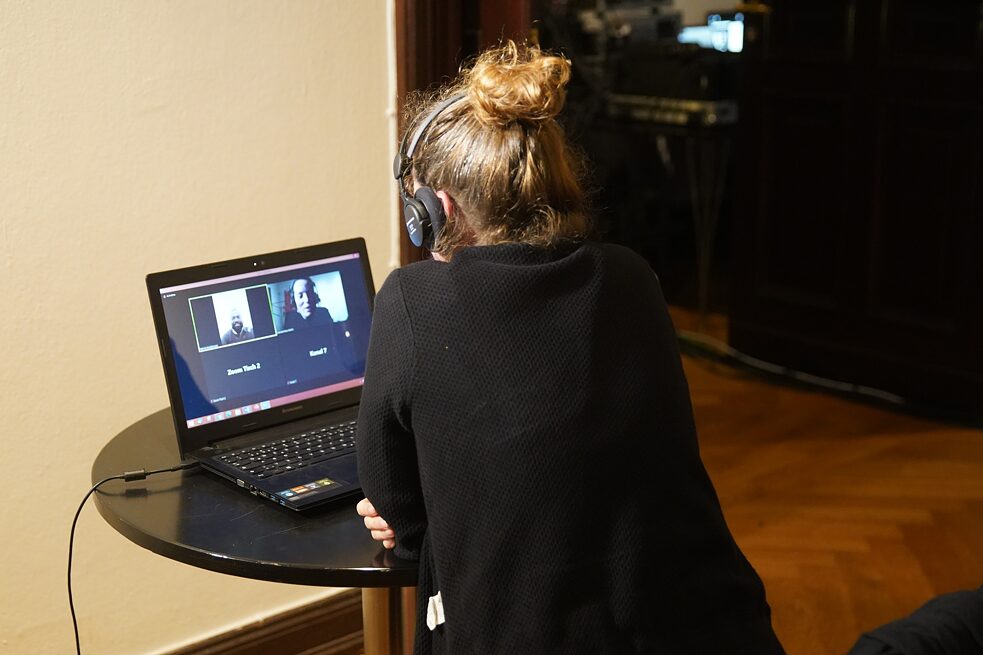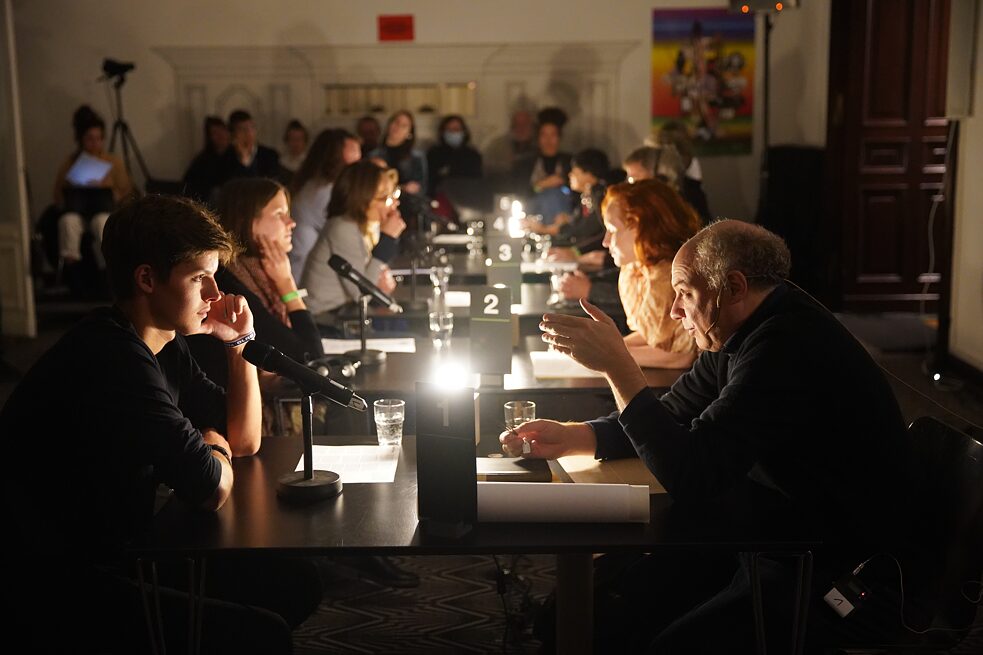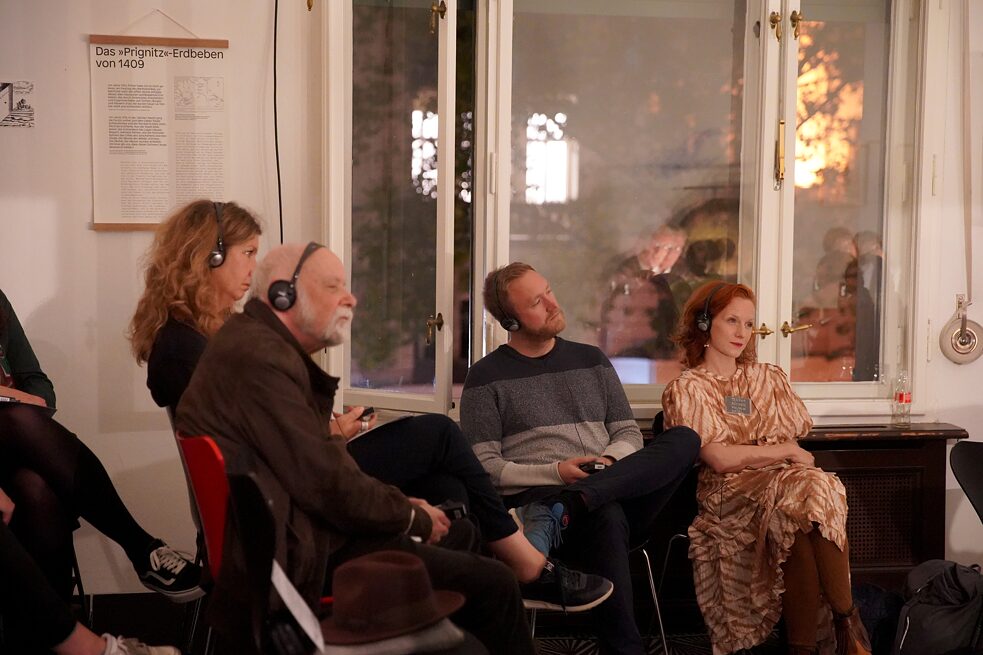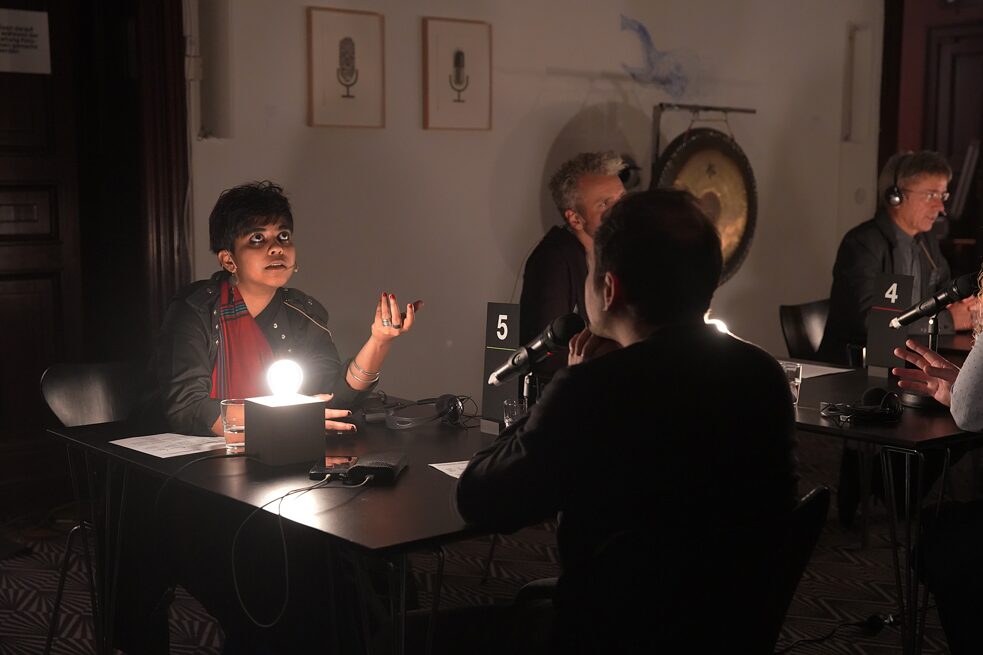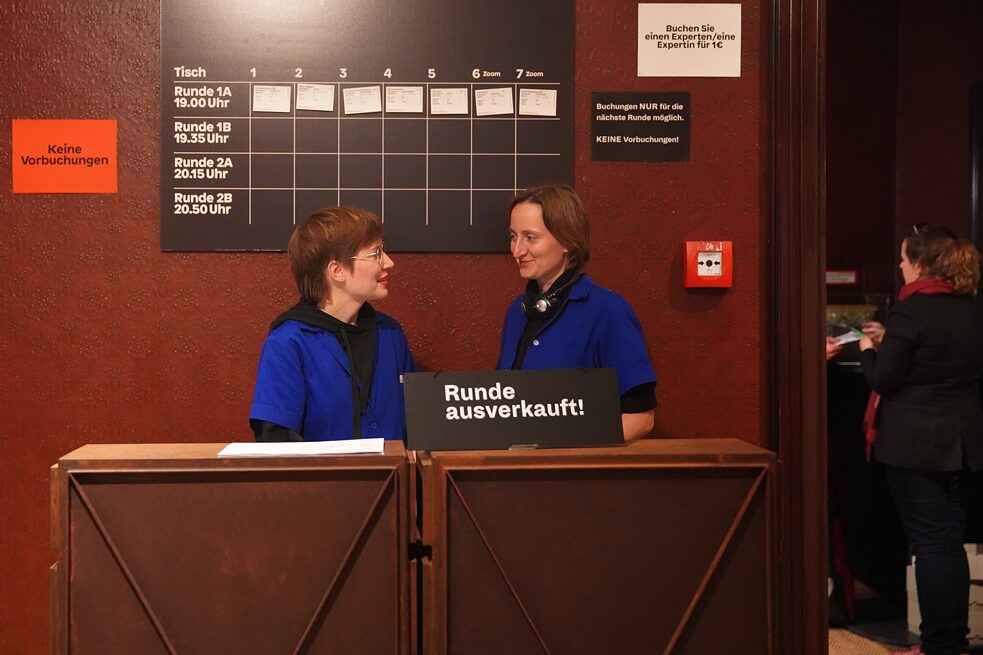“Market for Useful Knowledge and Non-knowledge. License No. 9”
If We Share. Dialogues on Scientific and Social Cooperations
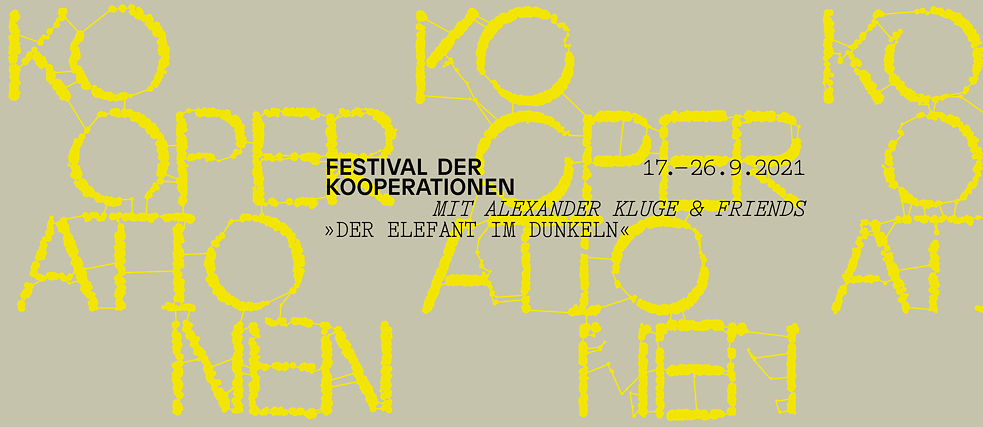
During the “Festival of Cooperations” in September 2021, the Goethe-Institut Brussels, in association with the Literaturhaus Berlin, organised the “Market for Useful Knowledge and Non-knowledge. License No. 9”. The format, devised by the Mobile Academy Berlin, included discussions between the audience and experts from the fields of science, literature and the arts. The collective exchange of knowledge provided far-reaching insights into the impact of the pandemic and the future potential for social cooperations.
By Anne Kurr, Naima Limdighri and Henrike Melcher
For the project Lockdown Lessons, the need to reflect collectively on societal developments provided insights into grave ecological problems and social injustices but also shed light on opportunities and utopias growing out of the corona crisis.
Support care work and fight for gender equality
According to the feminist author Teresa Bücker and her dialogue partner, the status quo remains, with hierarchies still prevailing and inequalities persisting between the sexes in terms of work and pay. Both participants in the discussion observe that gender equality was far more in the public eye at the beginning of the pandemic and that unpaid care work, stress on mothers and increasing rates of domestic violence were widely discussed. Now, it seems, that politicians are ignoring these issues and resisting the need for radical political change. The lack of visibility regarding the unjust situation for carers – above all single mothers, as well as those working in the care sector – leads to a lack of structural or collective solutions. Fundamental issues such as precarious working conditions, unpaid care work or racism in the workplace still struggle to be seen as such in the public eye. Bücker suggests that these real-life issues should be considered together as a whole rather than as individual points. In doing so, it is of the utmost importance to communicate with each other, in order to ensure no one is denied a voice and to overcome political powerlessness.Overcome powerlessness and practice political intelligence
The above can be linked to the idea of political intelligence as propagated by philosopher Olivia Mitscherlich-Schönherr. She uses the term to describe the independent use of reason, which allows the calls of activist and social movements to achieve long-term resonance in collective society. This implies the consideration of political possibilities and actions. Mitscherlich-Schönherr insists that political intelligence must be schooled constantly and consolidated over time, so that in the future one can act prudently. The model for political discussions, in which so-called experts are entrusted with political decision-making is out-dated and reproduces socio-political crises such as democratic deficiency, the inability to take on criticism or social isolation. The future model of democratic co-existence should see the founding of citizen councils. Such councils orientate themselves on democratic principles, efficiency and reason and as such are able to create grassroots accountability for political decisions. Such a shift to participatory political processes represents a counterbalance to the conventional rule of top-down expertise.Tackling the climate crisis collectively
The climate crisis requires collective consideration and cooperative action. This was the sobering take-away from the evening. The problem is real and a threat to life, fanning the flames of violent conflicts and having already caused irreparable suffering to humans, biodiversity and the planet itself. For a long time now, scientists have been calling for a 1.5 degree Celsius limit to global warming and have been criticising political decision-makers for not taking the situation seriously enough and playing down the catastrophic ecological developments.Gregor Hagedorn from the Natural History Museum Berlin, together with his discussion partner, identifies that changing behaviour towards individual consumption is not enough to overcome the climate crisis. This can only be achieved through a collective solution and legal interventions. At the same time, reciprocal admonishment will only lead to conflict. Hagedorn sees regulations not so much as authoritarian tools but more as integral components of a functioning coexistence within society. The climate researchers Stefan Rahmstorf and Kira Vinke diagnose a partly lacking basic understanding of scientific findings within the world of politics, as well as a failure to recognise the pressing issues of our times. Vinke considers the most pressing matters arising from this situation to be the violent conflicts caused by climate change. She appeals for more public awareness of and knowledge about the causes of armed conflicts. In order to achieve this change in perspective, Rahmsdorf recommends more decision-making power be afforded to citizens and climate councils, as these amalgamate more expertise and a greater sense of urgency. To a certain extent, this amounts to a combination, therefore, of Olivia Mitscherlich-Schönherr’s idea of political intelligence with Theresa Bücker’s appeal to overcome political powerlessness.
Guest experts
Konrad Braun — Teresa Bücker — Felipe Dias Rego — Gregor HagedornJean Macq — Elisabeth Massute — Olivia Mitscherlich-Schönherr
Patrick Mudekereza — Philipp Osten — Eric Otieno Sumba
Stefan Rahmstorf — Promona Sengupta — Adriana Urrea — Kira Vinke
